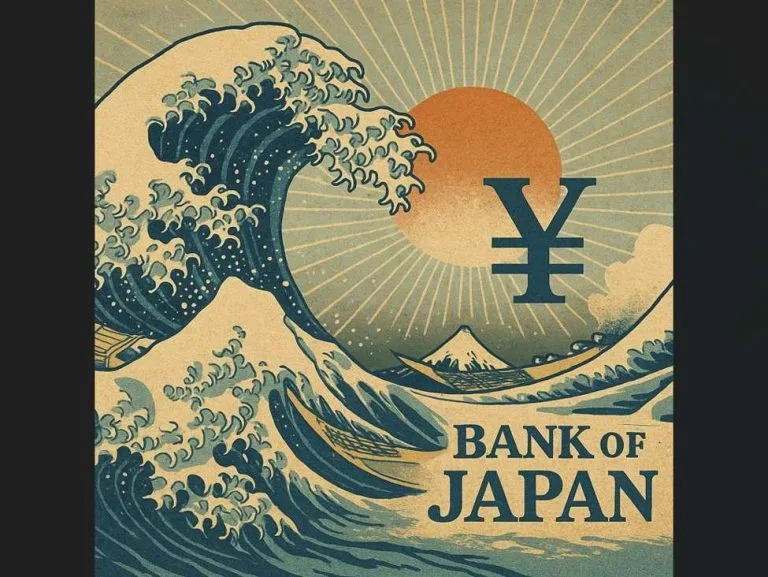Key Takeaways
- Japan’s Prime Minister Sanae Takaichi outlined economic policy prioritizing economy first, then fiscal policy.
- The approach involves strategic fiscal spending under a responsible proactive fiscal policy concept.
- Fiscal sustainability will be maintained by reducing the debt-to-GDP ratio to preserve market confidence.
- Measures will include preparing economic actions and submitting a supplementary budget, but cash handouts are excluded due to a lack of public understanding.
- The government aims to abolish provisional gasoline and diesel fuel tax rates and implement tax credits to alleviate winter energy bills.
Economic Policy Framework in Japan
Japan’s Prime Minister Sanae Takaichi announced a new economic policy framework, emphasizing the principle of economy first, then fiscal policy. This foundational approach will guide the nation’s economic strategies moving forward. Takaichi detailed plans for the strategic implementation of fiscal spending, guided by the concept of a responsible proactive fiscal policy.
Fiscal Sustainability and Market Confidence
A key objective in the new economic direction is the assurance of fiscal sustainability. Takaichi stated that maintaining market confidence is paramount and will be achieved through a commitment to reducing the debt-to-GDP ratio. This focus on fiscal health is intended to provide stability and predictability for both domestic and international markets.
Immediate Economic Measures and Budgetary Plans
The government plans to act swiftly in preparing economic measures and intends to submit an essential supplementary budget to parliament. However, Takaichi clarified that certain measures, specifically cash handouts that were part of pledges during the Upper House election, will not be implemented due to a perceived lack of public understanding.
Energy Tax Reforms and Winter Relief
In an effort to provide relief and stimulate the economy, the administration is targeting the abolition of provisional tax rates. Legislation is being prepared for the current diet session to eliminate the provisional gasoline tax rate. Furthermore, the government aims to abolish the provisional diesel fuel tax rate at an early date. These measures are expected to assist consumers with electricity and gas bills during the winter months.
💡 Will start designing a system for tax credits with benefits.
💡 Will launch the Japan Growth Strategy Council to expand economy.
💡 Domestic energy sources like nuclear power, perovskite solar cells are important.
💡 To aim for early deployment of next-generation innovative reactors and fusion energy.
💡 To discuss integrated reform of taxation, social security at cross-party conference body.
Growth Strategies and Energy Investments
To foster economic expansion, the government will establish the Japan Growth Strategy Council. This council is expected to drive initiatives aimed at increasing the size and vitality of the Japanese economy. A significant focus will also be placed on energy security and innovation. Takaichi highlighted the importance of domestic energy sources, including nuclear power and perovskite solar cells, signaling a commitment to advancing these technologies. The strategy includes aiming for the early deployment of next-generation innovative reactors and fusion energy.
Taxation, Social Security, and International Relations
Looking ahead, the government plans to address fundamental aspects of Japan’s fiscal structure. A cross-party conference body will be convened to discuss an integrated reform of taxation and social security systems. On the international front, Takaichi reaffirmed the bedrock of Japan’s foreign policy and national security: the alliance with the United States. The Prime Minister expressed a commitment to building a relationship of trust with former U.S. President Trump and working closely to further elevate the Japan-U.S. relations.
Market Reaction to Policy Announcements
Following the announcement of these economic policy directions, the USD/JPY pair saw an upward movement. As of the reporting time, the currency pair was trading up by 0.26% on the day, reaching the 153.00 level. This reaction suggests that market participants are observing the policy shifts and their potential impact on currency valuations.
Japanese Yen FAQs
What influences the value of the Japanese Yen?
The Japanese Yen (JPY) is a major global currency. Its value is significantly shaped by the performance of the Japanese economy, but also crucially by the monetary policies set by the Bank of Japan (BoJ). Other key factors include yield differentials between Japanese and U.S. bonds, and overall risk sentiment among traders.
How does the Bank of Japan impact the Yen?
The Bank of Japan has a mandate for currency management, making its actions critical for the Yen’s trajectory. While the BoJ has intervened in currency markets directly at times, typically to weaken the Yen, such actions are undertaken cautiously due to political considerations from trading partners. The BoJ’s prolonged period of ultra-loose monetary policy between 2013 and 2024 led to Yen depreciation against major currencies due to policy divergence. However, recent moves toward unwinding this policy have provided some support to the Yen.
What is the significance of interest rate differentials?
Over the past decade, divergent monetary policies, particularly between the BoJ and the U.S. Federal Reserve, have widened the gap between 10-year U.S. and Japanese bond yields. This widening differential historically favored the U.S. Dollar over the Japanese Yen. The BoJ’s decision in 2024 to gradually move away from its ultra-loose policy, alongside interest rate cuts by other major central banks, is contributing to a narrowing of this differential.
What is the Yen’s role as a safe-haven asset?
The Japanese Yen is often regarded as a safe-haven investment. During periods of market uncertainty or stress, investors frequently turn to the Yen, perceiving it as a reliable and stable store of value. Consequently, turbulent economic times typically see an increase in the Yen’s strength relative to currencies considered higher risk.
Final Thoughts
The newly outlined economic policy for Japan prioritizes growth and fiscal responsibility. Key initiatives focus on tax reforms, energy independence, and strategic fiscal spending, while maintaining market confidence through debt reduction. The government’s approach signals a deliberate strategy to bolster the economy while addressing immediate financial pressures on citizens.

